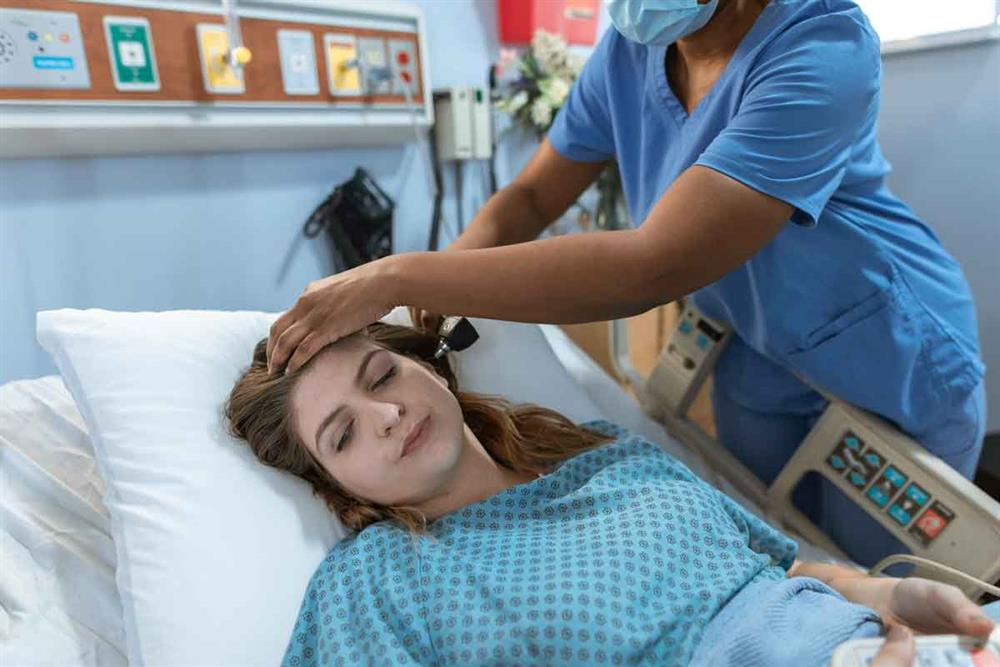Being a nurse is one of those occupations that require much more than just knowledge and experience; it requires passion, empathy, and compassion too. Nurses dedicate long hours to caring for others, performing activities that save people’s lives but also come with a considerable level of stress, as well as mental and physical exhaustion. In this informative article, we will talk about the most common duties and responsibilities of registered nurses (RN), which are usually unknown by the general public and by those who are interested in pursuing a career in this field.
What Do Registered Nurses (RN) Do?
A broad description of what nurses do is provide direct care to patients, whether they are in a critical state, in recovery from an illness, or preparing to have surgery. In certain settings, nurses are also expected to provide health education to help patients prevent diseases or care for themselves once they are discharged to go home. Nurses usually work in hospitals, nursing homes, or clinics, but they can also work in rehabilitation centres, community centres, home care agencies, doctor’s offices, and even independently.
Registered Nurses, which is the most common denomination for people in this occupation, do perform other activities. According to the Canadian Nurses Association (CNA), RNs work “side-by-side” with physicians and other health care professionals with whom they are partnered, and their work is “crucial” for medical teams and patients because they contribute to the early detection of diseases, better screenings, chronic disease management, and health promotion.
What RNs do and don’t do depends a lot on where they work, and not just the workplace, but also the province. That is why the CNA explains that “there is still a need for a national understanding of the optimal role of the RN. Many RNs working in primary care settings do not realize their full potential, including the valuable contributions that they can make in the health of the communities in which they work.”

Duties And Responsibilities Of Registered Nurses
Registered Nurses (RNs) perform a wide list of duties and have numerous responsibilities, depending on expertise and their specialty, which can be surgery, pediatrics, obstetrics, psychiatry, oncology, emergency care, rehabilitation, and many others. However, for the purpose of this article the following list just includes the most common duties and responsibilities of registered nurses (RNs) in general:
Conduct physical exams to assess patient health needs and determine the best nursing care for each one of them. They also monitor, document, and report symptoms and changes in their conditions. To perform these duties, nurses also check patient’s health history, most recent physical evaluations, allergies, and other relevant variables.
Collaborate with physicians and other medical professionals to plan patient care, implement it, and evaluate the outcomes. During the nursing care planning process, sometimes nurses decide to get patients and even their family members involved in order to increase the chances of success, especially when it comes to long-term treatments, medication, and diet changes, and similar actions.
Administer medications and treatments to patients according to prescriptions made by physicians or according to certain protocols. In some cases, they also counsel patients on drug therapies, side effects, and possible interactions with other medications they may be taking at the same time.
Operate medical equipment such as blood pressure monitors, thermometers, glucose testing kits, stethoscopes, and more in order to get recent information about patient’s conditions and fill in their charts
Assist in surgery and other medical procedures like emergencies. They usually help prepare surgical rooms and medical equipment. They also provide care to patients before, during, and after surgeries.
Supervise and train licensed practical nurses (LPNs), nursing assistants, and other nursing staff, as well as personal support workers (PSWs).
And there you have them, the most common duties and responsibilities of registered nurses (RN). What do you think of them? Is this a career you would like to pursue? Do you know a registered nurse and now feel more appreciation for her or him, after learning about all they do? Let us know in the comment section below. Your comments and questions are always appreciated.
Source: https://bit.ly/2Yd4V8u